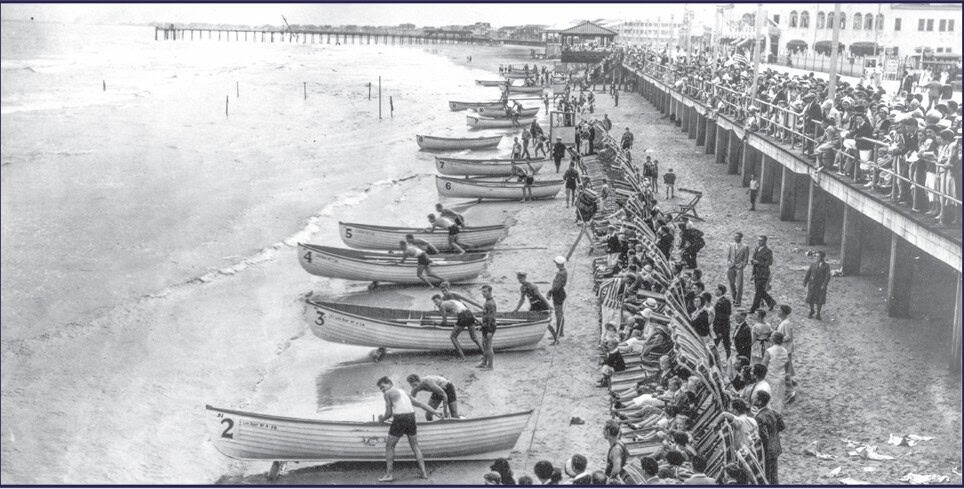Firm in Faith
Parishioners and clergy have had to change their ways of connecting for worship.

Like many restaurants, fitness clubs, and other businesses, the doors to places of worship in New Jersey have been closed since March, when Gov. Phil Murphy began signing executive orders to mitigate the spread of Covid-19.
Under those orders, and much to the dismay of countless faith-based practitioners, gatherings were restricted to 10 or fewer people.
Many followers of religion have had their faith in a higher power tested like never before. Not being able to physically participate in services that help them cope with life’s obstacles has been a challenge to religious leaders and congregants alike.

“Our building has been closed since the shutdown began in New Jersey,” said Rabbi Abby Michaelski, of Beth Israel Congregation, Vineland. “…So, we have been unable to gather in person with holiday events and other community programs, including funerals and shiva gatherings.”
Like other businesses, places of worship have had to adjust and adapt to these trying times in attempts to stay connected with their faithful followers.
“Our congregation has been holding meetings and services online via Zoom,” said Michaleski.
Beth Israel has also been holding support gatherings and adult education classes on the site, according to the rabbi, who’s served as a congregational spiritual leader since 2006. She explained that there are many ups and downs with not being able to conduct in-person services.
“While not an ideal setting, as we would much prefer to be together in person,” she said, “it has been a positive way to come together in prayer and community.” However, the Rabbi added, “there [are] some in the community who are either uncomfortable with or unable to meet online.”
Interestingly, Michaleski noted that there’s been “an overall increase in attendance,” since Beth Israel began putting its services online.
Frank Ippolito, pastor at Calvary Chapel in Vineland, noticed a similar phenomenon taking place with his church.
Calvary Chapel has been livestreaming its church services for quite some time now, even before the pandemic.
“We have enjoyed a few years of online services,” said Ippolito, who’s been a pastor since 1985. “We also have an archive library of all our past sermons and studies available on our website…”
The church, which Ippolito said employs a tech staff as well as volunteers who handle its livestream broadcasts, also has its own app, found on Apple TV and Roku.
“Our online services are drawing a larger crowd than ever before, which is to be expected given the Covid situation,” the pastor shared. “But what is unique is that many are watching who have never been to our church before.
“The crisis has been very beneficial to our overall outreach.”
As spiritual leaders, Michaleski and Ippolito are attentive to the feelings conveyed by those who follow them, especially during these unsettling times.
“While members have expressed understandable frustration with the situation and concern for the future,” said Michaleski, “most express a positive outlook and gratitude for having their health and safety while sheltering in place.”
Regarding his “flock,” Ippolito said, “They’re starting to show signs of a form of spiritual separation anxiety.”
The pastor who spoke about the difficulty of not being able to conduct in-person services, described a recent event that uplifted his spirits.
“Last Sunday, someone in our congregation organized a parking lot rally in our church lot,” he said. “After I finished the livestream, I was surprised to see dozens of cars parked, honking until they all took turns to drive past where my wife and I were standing on the sidewalk—just to say hello and how they miss us and our church fellowship.
“I’d say this [the pandemic] has affected them. We miss being together.”
Michaleski, echoed those sentiments. “Members, of course, are missing each other and missing the ability to pray, sing, celebrate and mourn together – in person.”
Although she expressed emotions of disappointment and sadness about not being able to meet her members in person, the rabbi is “grateful for the technology to stay connected as best we can.”
During times like these, it’s always good to hear an encouraging word or two, so Michaleski and Ippolitio graciously shared a few.
“We humans are resilient, we are deeply connected to each other and we will get through this difficult time together,” said Michaleski.
“This will be over soon,” said Ippolito. “We’re going to be fine. So don’t panic. Just remember who we are, but most importantly, remember who He is.”









